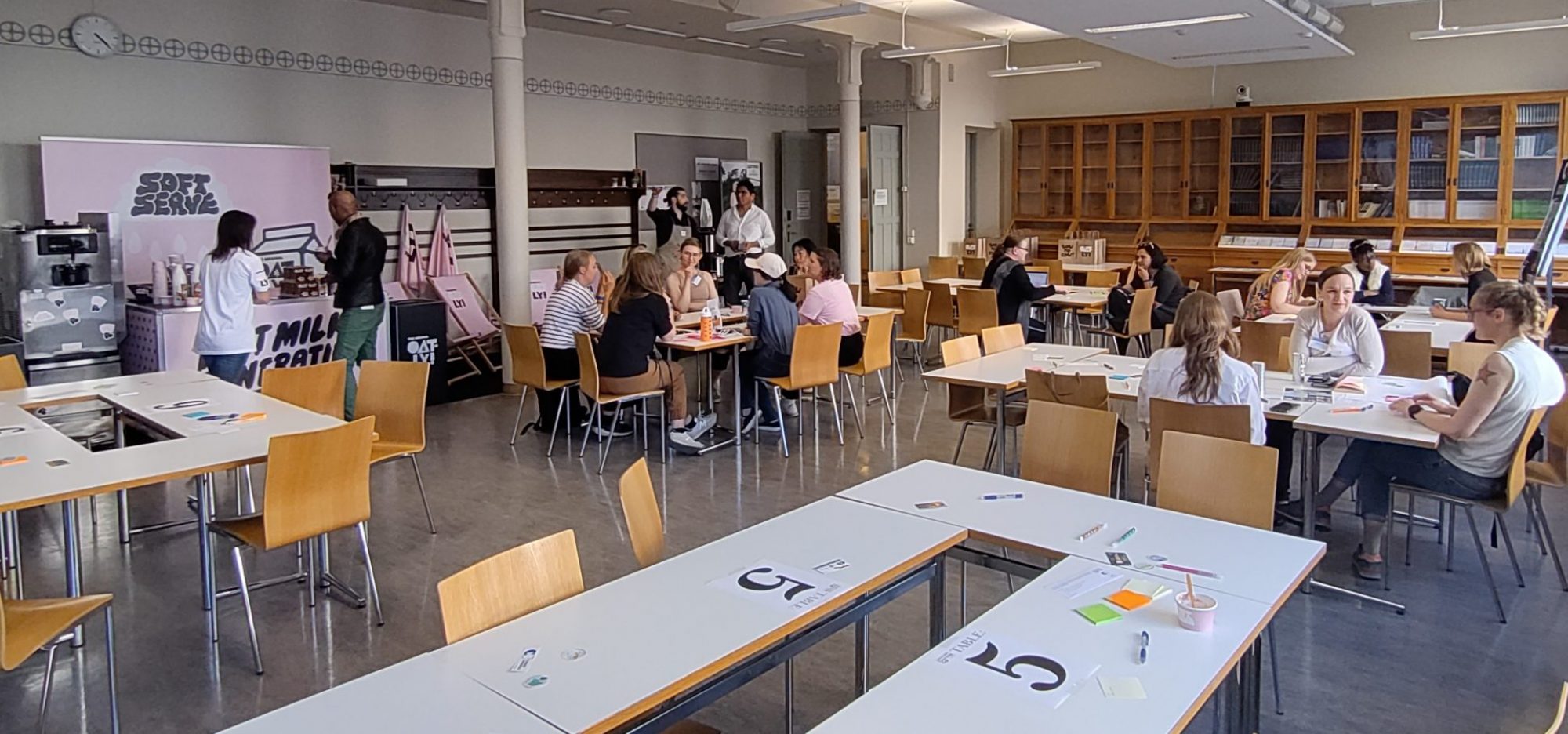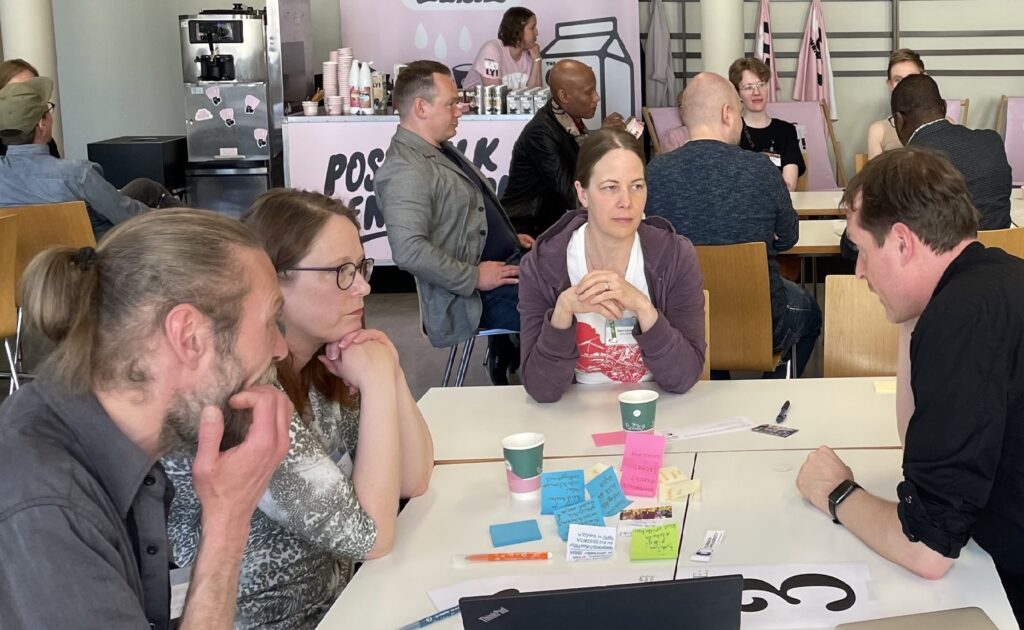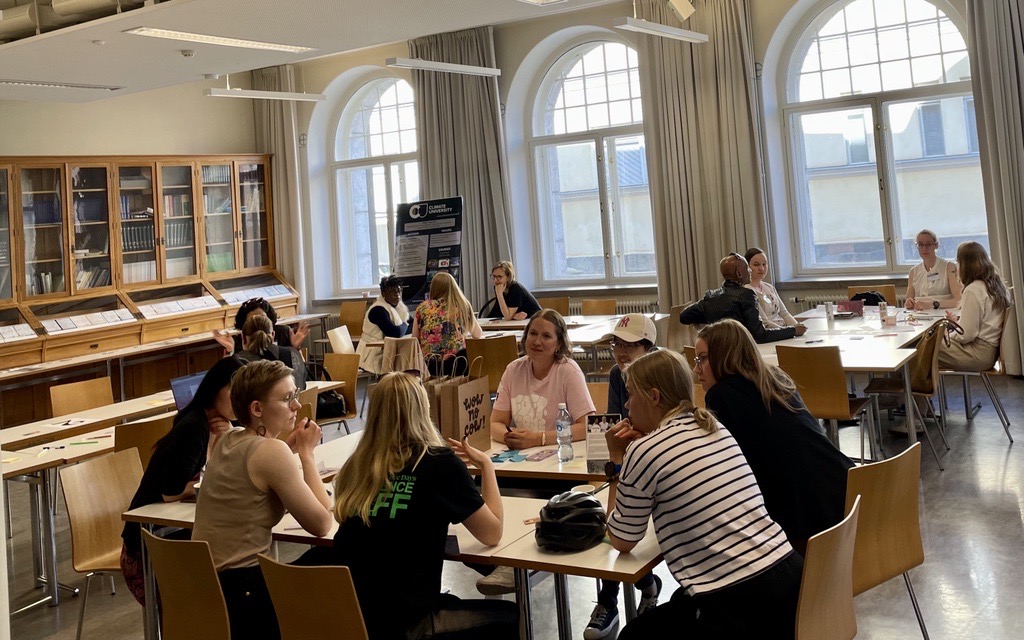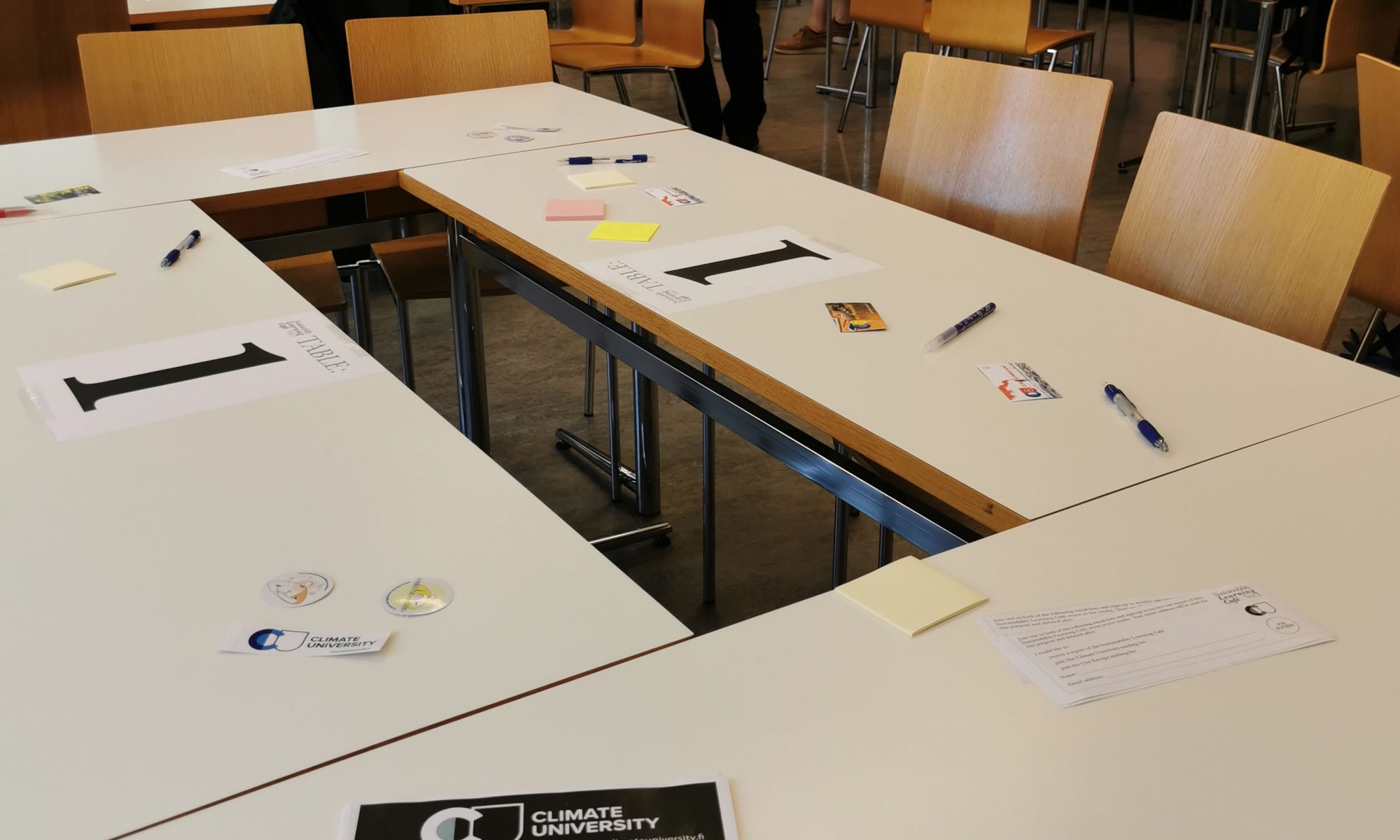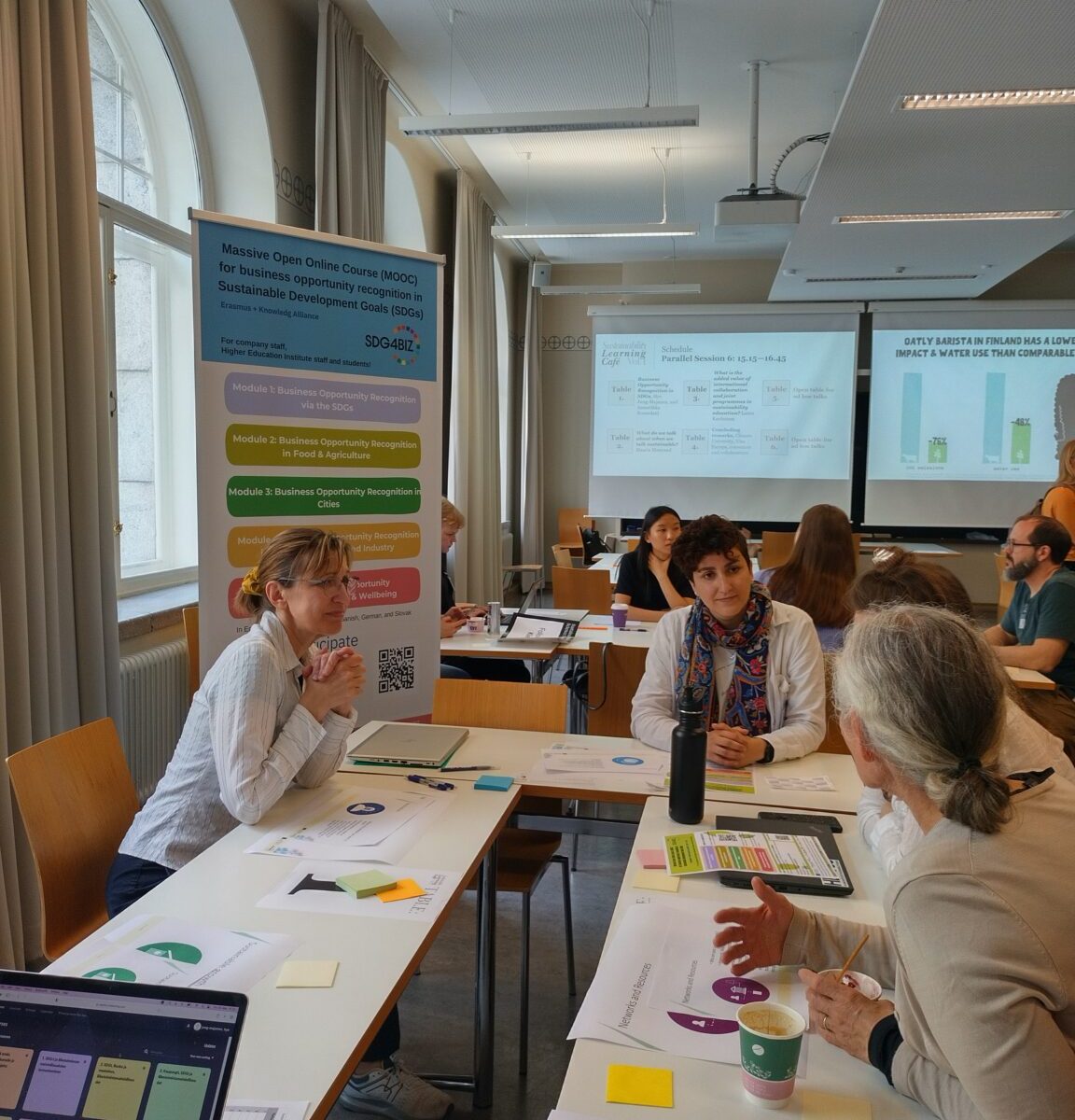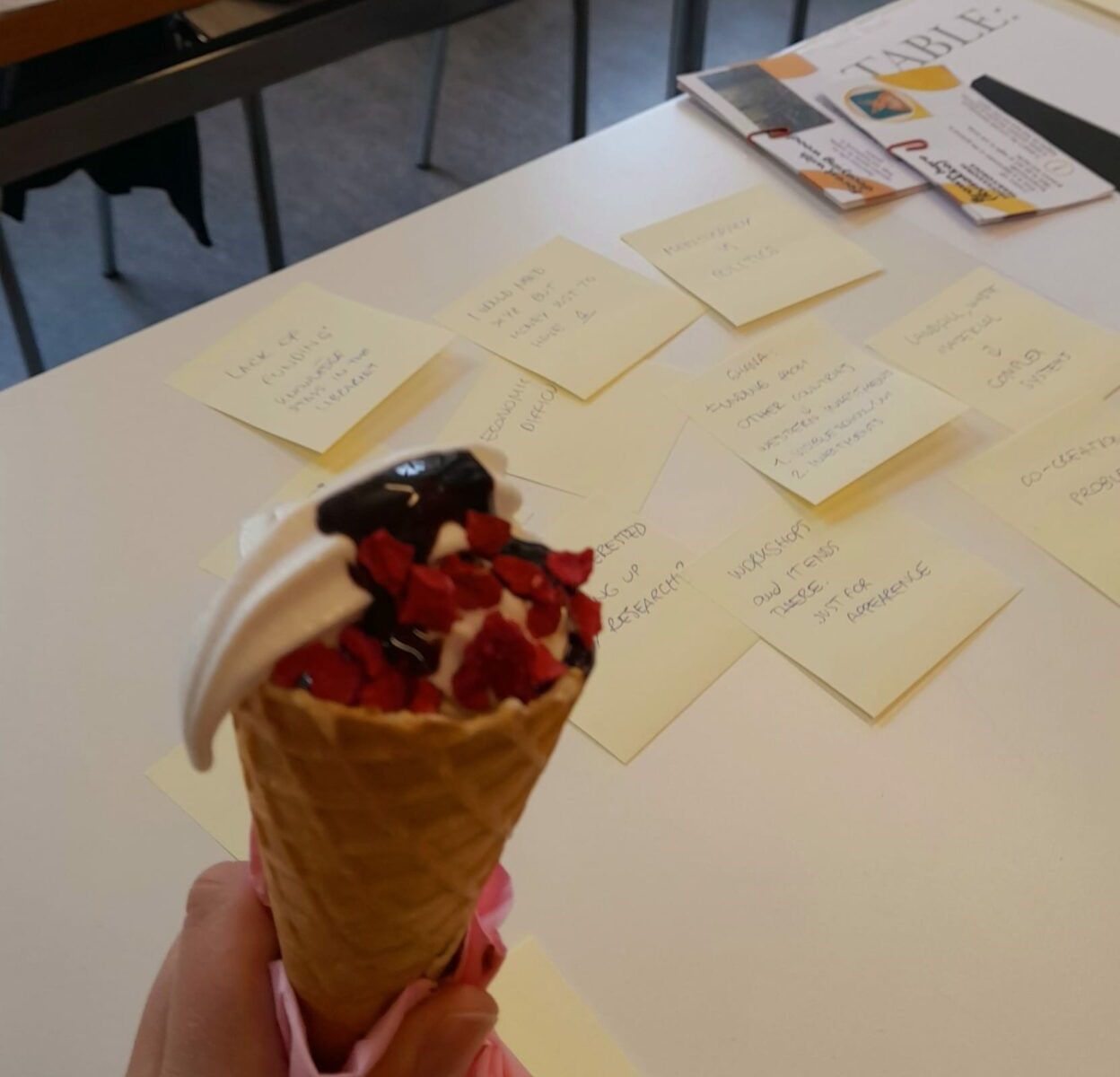Session questions(s):
What kind of sustainability knowledge and skills do employees need in different jobs and work communities? What kind of training or other continuous learning opportunities do employees receive to implement sustainability strategies in and through their work? Which structures, facilitated processes, resources or knowledge could promote sustainability efforts or activities of employees at work and with stakeholders outside the workplace? What are the hindrances for the sustainability efforts or activities of employees?
Session description:
Discussion in this table took a flexible form, moving between topics of interest related to sustainability staff training and mobilizing universities for radical sustainability transitions.
Session lesson(s):
– Sustainable development goals are often applied as a framework for discussing sustainability issues at work. It would be important to highlight the interconnected nature of these goals and how the goals, and actions toward these goals, interact and influence each other. Therefore, it’s important to recognize one’s own knowledge boundaries and seek multidisciplinary cooperation, combining expertise from several disciplines.
– In the universities, current pursuit for efficiency contradicts with sustainability aims. The heavy workload restricts staff from spending time on sustainability learning and action. University should encourage staff to allocate time in sustainability related studying, training and action. In any workplace, sustainability training should be easy to access, for instance by organizing training days or seminars on the subject. Sustainability could be part of the target and performance discussions between the employee and their superiors.
– Researchers at the university could do more to raise awareness on sustainability issues and degrowth ideas in the media and public debate. Universities and companies alike would do well to promote sustainability not only in their strategy discourse, but also through concrete examples of what they as organizations have done to promote sustainability. Awareness could also be raised by highlighting, for example, sustainability related projects or indicators relating to the carbon footprint and responsibility of a university or company. Research knowledge and status reports could be made available to a wider audience in the urban space, for example using billboards.
– There is a need to find diverse ways to increase the interest of employers to invest in the well-being of their own employees and in global and planetary well-being.
Questions arising:
– Is sustainability done at consumers end or production end?
– Sustainability from customer making the choice vs. from the producers making choices?
– Is it already expected to be sustainable?
– Is sustainability the decisive reason or just “nice to have”?
– Should there be specific stores to curate sustainable food?
Session keyword(s):
sustainability staff training, well-being, strategy implementation
Tuija Veintie, Rami Ratvio
University of Helsinki, Helsinki Institute of Sustainability Science & Centre for University Teaching and Learning
